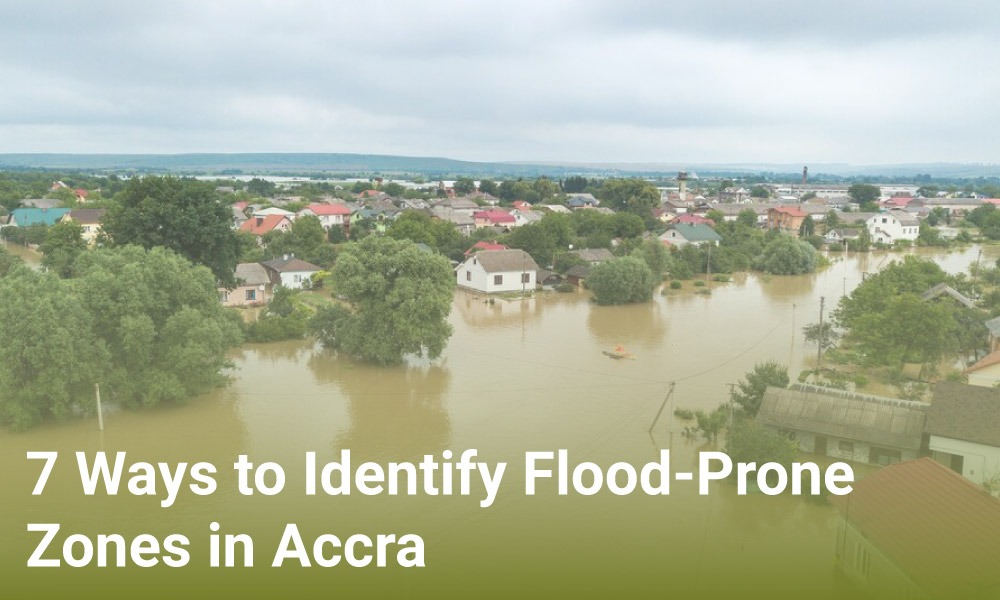Searching for a new house to buy in Accra necessitates careful consideration, particularly in flood-prone areas. To help you make an informed decision, we’ve compiled a list of seven useful tips for spotting flood-prone areas when searching for a house to buy in Accra. By being aware of these factors, you can protect your investment and select a home that will provide better protection during the rainy season.
Let’s take a look at the tricks listed below.
- Research Historical Flood Data
Before buying a house in Accra, look into the area’s historical flood data. Check to see if the neighbourhood has a history of flooding or if it is in a known flood zone. Local governments, meteorological departments, and flood management authorities can provide valuable information on previous flood incidents, allowing you to assess the level of risk in the area.
- Assess Proximity to Water Bodies
Rivers, streams, and lakes, for example, can have a significant impact on flood risk. Determine how close the house you’re thinking about buying is to these water sources. Properties near bodies of water are more vulnerable to flooding, especially during heavy rains or if the bodies of water are prone to overflowing. To determine the level of vulnerability, consider the elevation and potential drainage routes.
- Examine the Surrounding Topography
The topography of the land has a significant impact on flood susceptibility. Around the house, look for signs of significant slopes or depressions. During heavy rainfall, properties in low-lying areas or at the bottom of slopes are more likely to experience water accumulation. To identify potential flood-prone zones, assess the overall land gradient and nearby terrain.
- Check Drainage Systems and Infrastructure
Examine the effectiveness and condition of nearby drainage systems. Drains, culverts, and stormwater management infrastructure that are well-maintained are indicators of lower flood risk. Examine the area for signs of clogged or inadequate drainage, such as water stagnation or overflowing drains. Furthermore, assessing the quality of roads and pavements is important because well-maintained infrastructure promotes efficient water flow and reduces the likelihood of flooding.
- Observe Surrounding Landscaping
Take note of the landscaping around the property. Look for natural or man-made features that facilitate water flow or retention. Grassy slopes, swales, and retention ponds are all signs of good water management. In contrast, poor landscaping or a lack of green space in the surrounding area may increase the risk of water pooling and potential flooding.
- Engage with Local Residents and Experts
Interact with locals and seek advice from experts who are familiar with the area’s flood-prone zones. They have firsthand knowledge of the neighbourhood’s flood history and specific areas to avoid. Local residents frequently have valuable information on flood risks and are willing to share their experiences to assist them in making informed decisions.
- Consult with a Professional Surveyor or Engineer
Consider hiring a professional surveyor or engineer to assess the property and provide a thorough flood risk assessment. They can assess the property’s vulnerability to flooding by examining factors such as elevation, soil type, and proximity to bodies of water. Their knowledge will provide you with valuable insights, allowing you to make an informed decision based on reliable assessments.
When looking for a house to buy in Accra, it’s critical to look for flood-prone areas to protect your investment. Investigate historical flood data, evaluate proximity to bodies of water, inspect topography and drainage systems, observe landscaping, consult with locals and experts, and seek professional evaluations. Stay informed and make an informed decision to protect your new home from potential flooding hazards.


